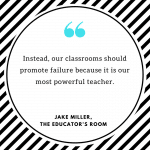I’m finishing this first full quarter with the 1:1 iPad classroom but apps do not hold attention spans this time of year. With April, love springs to life in all of its awkward forms. Attention spans are diverted towards prom invitations and long looks out windows; lacrosse, melting snows on the softball diamond hold great appeal. Thus the last quarter begins with incentives and compromises to motivate students. I turn towards studies of current events and apps that generate discussion and negotiation, simplicity and possibility. My choice apps are Croak.it and Explain Everything.
Before introducing new apps I reexamined the original work flow goals set months ago. Traditional grading rubrics assume that students who complete a project based on set criteria are at a higher level of learning and accomplishment than others who do not. I was faced with a dilemma. Teachers who pioneered Explain Everything stumbled into frustrations with work completion. Work flow apps were sometimes time-consuming and frustrated students who ignored various tasks would fail. They were developing a stubborn dislike of project based learning while colleagues insisted that skill level of the application was too sophisticated. This didn’t make sense as I discovered internet sites replete with screen cast narrations posted by young publishers. I studied three parts of this issue: how teachers defined success, why users had difficulty getting started and how learning is measured.
Explain Everything and Touch Cast apps capture images, notes, web clips into an interactive slide presentation that can be narrated, illustrated, annotated, etc. The possibilities are exciting or daunting. While it promises a seamless quality product, it takes awhile to get there. Teachers who tried launching this earlier were focuses on the one end result. They had criteria set for the best it could offer, not the possibility. Students had one tutorial, class time to experiment and were expected to finish it at home. Only one teacher really presented model uses. Conferencing with students led me to conclude that they were unaccustomed to hearing their recorded voice and shared anxiety about audio presentation. Students who scribbled out final draft essays on scrap paper were paralyzed by publishing expectations. The audio file that made them feel conscientious of the quality of their content also made them accept failure rather than sound foolish. Grades need to become quantitative measures of each separate app, each separate task.
I have made several Explain Everything lectures and they are all terrible. I track the time spent in preparation and I record a rough list of the tools I have improved upon that are embedded within the app. I gave myself various time constraints to make a presentation: 1 day, 1 hour, 45 minutes and 15 minutes. What I have learned is that the final product is not a reflection of what I actually learned in the process. I too, found myself hating the sound of my own voice. Repetitive recasting the audio led to an epiphany. I would assess students on creation instead of quality and give awkward recordings their value. I recollect walls of my family home lined with dioramas, drawings and clay lumps proudly displayed despite my lack of artistic talents. It has been awhile since I gave praise to high school mediocrity or encouraged students to fill a presentation with animated images of bouncing cats. But confidence needs to be instilled if the goal is to produce something meaningful for the final exam in June.
I shared my failures in class. In one presentation I’m singing the major eras of Imperial rule in India to a Bollywood tune. The voice is off, the timing is off. The facts are there. In another, I impersonate the dictator, Raphael Trujillo. I confess that each video took an evening of collecting images and evidence into three separate slides. Editing time was equivalent to two episodes of Game of Thrones. I really enjoyed walking through the class watching student faces as they grimaced and laughed. One complimentary comparison to Monty Python means we are now about to have some fun.
Students liked the idea of starting with their own simple audio and simple news analysis. The app allows for 30 seconds of audio sent right to Facebook, Twitter or email. It provides the practice of saying something meaningful without having to mash it with anything else. Then I had students practice posting news summaries to a collaborative Google map or a Google doc. We use the summaries to brainstorm what question needs further investigation on a topic of interest. I required that students tell me in a face to face conference the questions that drive their research. Students with notes, interest and practice can now attempt their own terrible or terrific Explain Everything video. If they become frustrated they have the other apps to fall back on. The minimum use of adding 1 image, a fact and sound to each of three slides seems less daunting. I promised to accept all qualities, encouraging students to add those images of bouncing cats.
Students receive grades for each task accomplished not for mastery of one application. The value is based on how to make improvements, to experiment with more tools and more content. Students will make 3-5 total before the final exams in June with a variety of expertise but surpassing a minimum level of competency. Any student unable or unwilling to use Explain Everything can still hand in work from other applications or can revert to writing on paper presented in a private conference with me. I am convinced that this offers options that support success at all levels. I am currently sitting at home during my April Break, reviewing assignments handed in and enjoying the risks that students take. They are clever, fun, fantastic. Now I just have to figure out how to post these with pride on a virtual wall .






Leave a comment